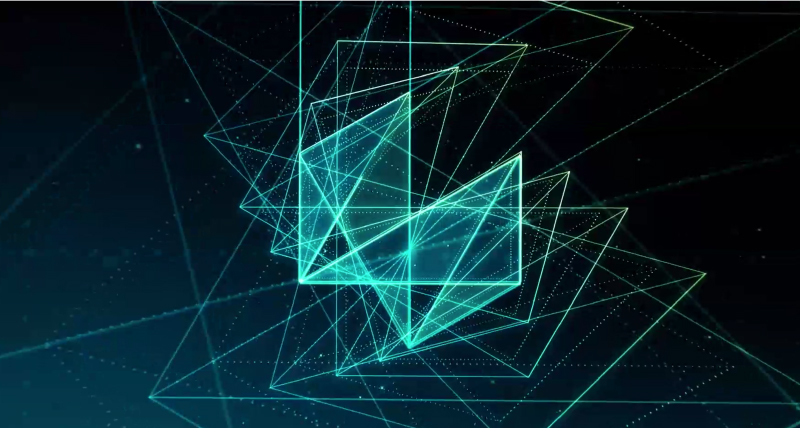Welcome to a glimpse of the content featured in the latest edition of Reporter 91, our magazine dedicated to surveying solutions, geospatial content, building solutions, heavy construction and other geospatially empowered industries. Published by Hexagon’s Geosystems division, this edition delivers invaluable insights vital for professionals across diverse industries.
In this article, Burkhard Boeckem, Hexagon’s Chief Technology Officer, delves into how Hexagon is shaping a future driven by user-centric design and seamless integration across platforms. If you enjoy this article, check out the other compelling articles in the issue, including one by Hexagon Geosystems President Thomas Harring on how construction insights are in sight, Moritz Lauwiner on putting the serve into surveying and Adina R. Gillespie on how geospatial digital twins can make us smarter.
Visit Reporter 91 for the full experience
Complex industrial technologies should be held to the same standards we expect of consumer-focused technologies. They should be intelligent, intuitive, efficient and inspiring. That’s why Hexagon’s innovation strategy puts you and your experience at the centre.
Every new technology is an expression of optimism — optimism that everything in our lives can be improved. In a world where challenges are greater than ever before, as innovators we must use our talents to bring about positive change. We can create a better future for us and for generations to come.
First-person innovation
At the heart of Hexagon’s innovation thinking is the belief that industrial technologies should be as human-centric as consumer technologies. First-person innovation means putting the user at the centre of everything we do to create products that are intuitive, efficient and inspiring.
Empathy forms the bedrock of user-centric design. We step into our users’ shoes and create solutions with their specific needs in mind. Design and usability will make a crucial difference for our products and systems, especially in the software environment.
The original Leica BLK360 simplified 3D scanning and made reality capture accessible for less specialised users. It is intuitive to use, robust and beautiful and simplified the customer’s everyday work life. We took what we learned from the original and incorporated this feedback into the next-generation BLK360. We made the app even more intuitive, we made scanning and data transfer faster, we empowered the system with our VIS technology and we made it 20% smaller.
Hexagon actively engaged end users throughout the development process of the Leica AP20 AutoPole. A thorough analysis of the user workflow identified opportunities to significantly enhance ease, speed and efficiency for our surveying customers, which led to technical innovations like tilt compensation and the auto height function.
Similarly, firsthand observations of existing work routines, along with usability tests and surveys, allowed us to successfully streamline and optimise our Leica Pegasus TRK mobile mapping system. By integrating hardware and software products into one unified system, we optimised and simplified the workflow and addressed the diverse needs of our users.
These success stories of user-centric design were made possible through our close collaboration with customers, as well as great teamwork. Innovation flourishes when diverse perspectives converge with a shared vision.
Connecting everyone
Just as various elements intertwine within natural ecosystems, our technologies should be designed to work together seamlessly. Developed with users in mind, Nexus — the open digital reality platform for manufacturers — is bridging silos and enabling faster innovation. Recently announced, Nexus for Developers provides a robust suite of platform services, encompassing native apps, customised workflows and Hexagon’s proprietary technologies.
Nexus is built on the principle of “freedom to innovate”. It is an open platform with an open API and open data, enabling customers to integrate Hexagon’s technology with third-party applications of their choice.
To unlock the technology’s potential to deliver value at scale, Hexagon has entered into a collaboration with Microsoft. Currently, we are combining capabilities to build digital twins more rapidly by integrating the Nexus platform into Microsoft Azure.
Access to everywhere, from anywhere
Working with digital realities requires collaboration, visualisation and user management that offers access and privacy. It also necessitates scalable cloud storage for big data and automated processing to extract insights from the data that AI can support. Hexagon uses advanced algorithms in many of its applications; for example, to model and classify 3D environments or monitor progress in construction.
HxDR, Hexagon’s digital reality platform, brings all these technologies together with a comprehensive suite of geospatial data services, including visualisation, collaboration tools and automated data processing. HxDR connects existing Hexagon products to the cloud and enables users to customise the source code or rewrite it completely to develop their own custom applications.
Reality Cloud Studio, a software-as-a-service (SaaS) application built on the HxDR platform, enables users to easily upload reality capture data to the cloud for automated processing, accelerating the creation of photorealistic digital twins. This data can be securely shared with others, enabling users to collaborate in real time and delivering immersive visualisations.
Partnerships
The industrial metaverse is unifying multiple technologies that converge to form a truly immersive experience. It is not confined to web browsers. The excitement around spatial computing technology indicates how eager we are to augment our reality. Spatial computing technology by Immersal, part of Hexagon, is key to accelerating the industrial metaverse that seamlessly connects the physical and the digital world. Hexagon is collaborating with NVIDIA to enable industrial digital twin solutions that unite reality capture, manufacturing twins, AI, simulation and visualisation to deliver real-time comparison to real-world models.
As part of the collaboration, Hexagon’s HxDR reality capture platform and the Nexus manufacturing platform will be connected to NVIDIA Omniverse, a platform for developing and operating industrial metaverse applications based on the Universal Scene Description (USD) framework. The connected platforms provide complementary technologies that enable customers to advance manufacturing for digital factories and accelerate the power of digital twins for intelligent cities, construction and infrastructure.
Through real-time data capture and analyses, Hexagon’s Smart Digital Realities™ transform digital twins to provide customers with a 360-degree view of the real world that helps improve productivity, quality, safety and profitability.
Last year, Hexagon further advanced its industry-leading reality capture solutions through a new partnership with Sony Semiconductor Solutions Corporation (Sony), the global leader in image sensors. The collaboration between Hexagon and Sony will deliver a seamless data capture and processing workflow, reducing the time between capturing and delivering results.
As a first step, Hexagon has integrated Sony’s capabilities into the development of the upcoming Leica BLK2GO PULSE. The handheld reality capture device fuses Sony’s advanced Time-of-Flight technology and Hexagon’s proven GrandSLAM technology, creating a rapid, simple and intuitive first-person scanning method to capture only what you need, when you need it, from your point of view. All BLK2GO solutions share the ability for immediate data access and exchange among project teams to provide effortless uploading to the cloud directly from the device, fostering smarter collaboration.
First-person innovation, interconnectivity as well as openness and collaborative partnerships will allow us to tackle humanity’s biggest challenges. The time to innovate is right here, right now.

















